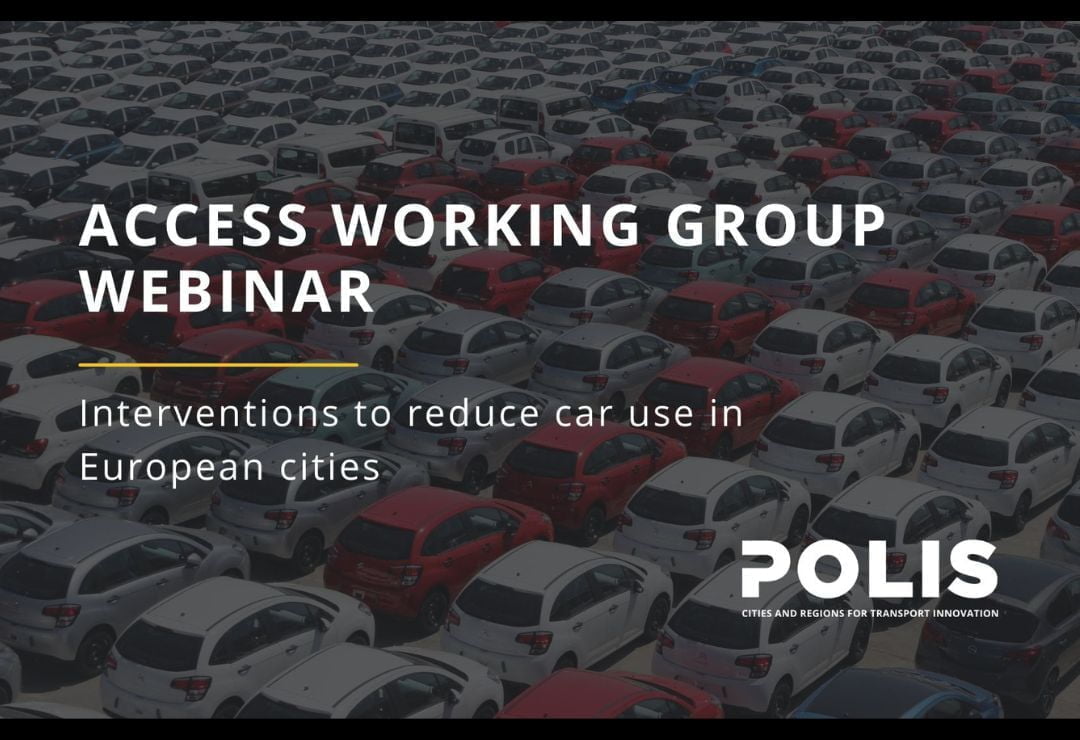Access Working Group explores car reduction, from research to action!
The Access Working Group convened for a webinar exploring cutting edge research on reducing cars from cities, examining how cities and regions can apply these on the ground.
The race is on to decarbonise urban mobility. Cities and regions across Europe- and beyond- have set ambitious greenhouse gas emission reduction targets, targets which require radical, transformative action. Reducing volumes of private cars is essential for achieving these. Indeed, across Europe, from Brussels to Budapest, Paris to Bielefeld, cities are taking increasingly radical action to cut car use in urban spaces.
While this is not easy, regulatory and practical solutions are at hand, and there is growing evidence-based research on car reduction, drawing from good practices and pilots.
To explore how cities and regions can translate ambition to effective, durable action, POLIS’ Access Working Group convened researchers and city representatives to share effective measures and instruments.
Professor Kimberly Nicholas’ (Lund University) recent paper, “A dozen effective interventions to reduce car use in European cities: Lessons learned from a meta-analysis and transition management” screened hundreds of car reduction initiatives in European cities to highlight 12 successful car reduction interventions with quantifiable impact, including limited traffic zones and congestion charges.
Professor Nicholas joined to share her research and how cities could draw its key learnings and apply these on the ground.
We also heard from Stephen Frost, Co-Head of Participative Research and Principal Research Fellow, IPPR (Institute for Public Policy Research), who presented the paper: “Fairly reducing car use in Scottish cities: A just transition for transport for low-income households”.
This put a spotlight on how accessibility and inclusion can be placed at the forefront of decarbonisation agendas, and some of the key challenges cities may face in this journey.
This was then coordinated with an examination of how POLIS member, Budapest is applying some of these principles on the ground, the challenges faced and a look forward to future action.
The webinar provided a forum for comprehensive discussion between POLIS members on how these tools can be used to address parking and traffic control, workplace parking charge, and commuting.
About the Working Group:
The Access Working Group covers a broad range of topics related to social and economic aspects of transport, including the accessibility of transport to those with disabilities and accessibility to basic services for everyone, the financing of public transport and transport projects (including road infrastructure), regulation, planning and governance.
Please note: This event is open to POLIS members only. Members can view the full report with an overview of all findings HERE.




